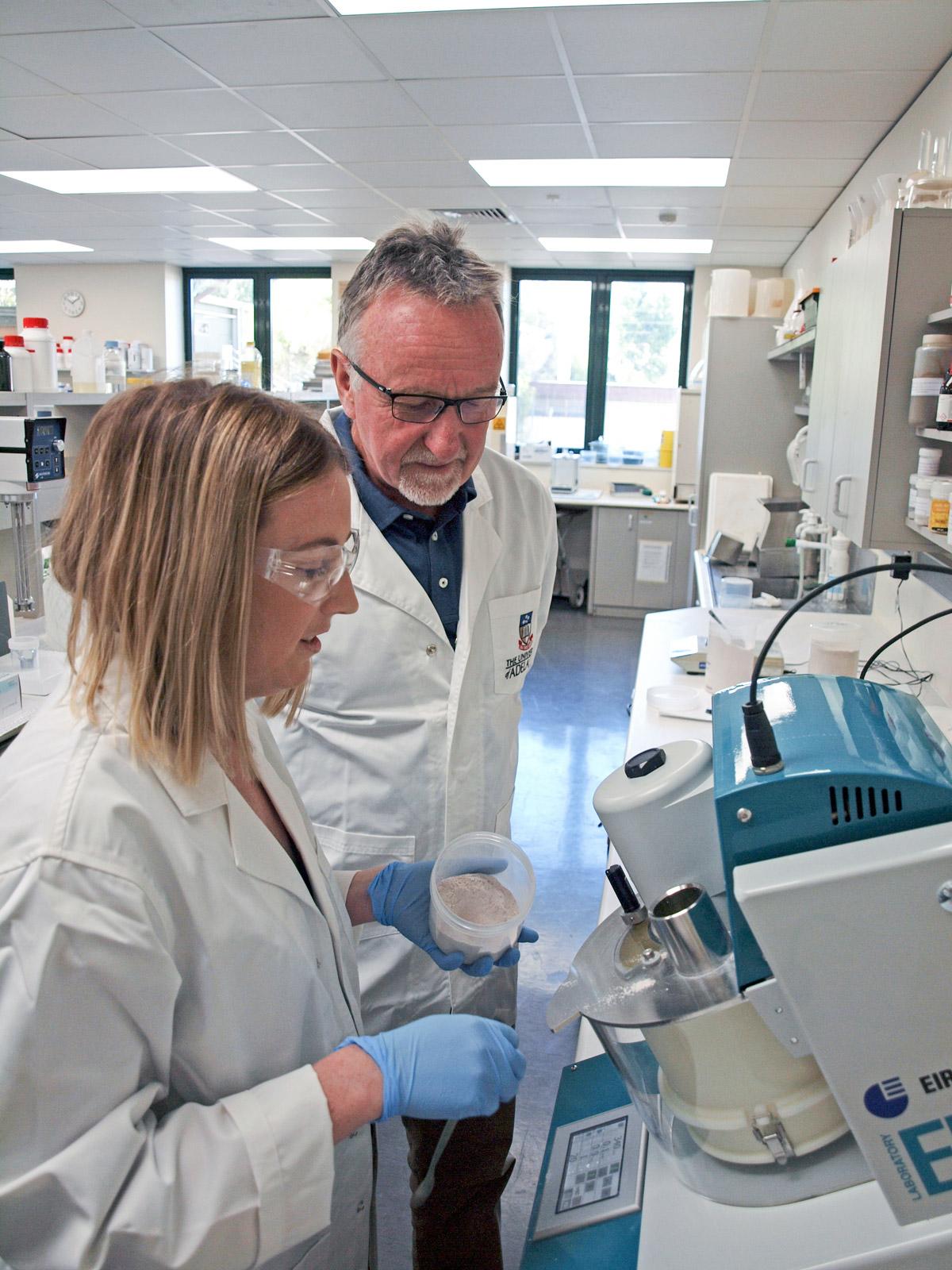Advanced fertiliser research forges ahead with new industry contract
Enhanced spreading, improved efficiency and reduced environmental impact will be the focus of continuing fertiliser research under a new five-year partnership agreement between the University of Adelaide and US-based fertiliser producer The Mosaic Company.

Professor Mike McLaughlin and Technical Officer Ashleigh Broadbent
Based at the University’s Waite campus, the Fertiliser Technology Research Centre focuses on the fundamental processes controlling fertiliser efficiency in a wide range of soils globally. The Mosaic Company , the world’s largest provider of potash and phosphate fertilisers, has been a major industry partner since the centre’s establishment in 2007.
“With Mosaic’s continuing support, we’ve been able to significantly expand our capabilities and equipment for fertiliser formulation and evaluation,” says Professor Mike McLaughlin, Director of the Fertiliser Technology Research Centre (FTRC) and Professorial Research Fellow with the School of Agriculture, Food and Wine.
“Research over the next five years will be focused around developing fertilisers with enhanced spreading and handling qualities, and pairing fertilisers with plant traits, biostimulants and microbial technologies for enhanced agronomic efficiency and minimised environmental impacts.
“Materials science is also providing us with new raw materials, such as graphene, to enhance fertiliser effectiveness and fertiliser quality, and we will continue to seek the most effective use of these materials in manufacturing novel formulations.”
The University has recently signed a new research and development contract with The Mosaic Company to the end of 2024.
“Mosaic’s 13-year partnership with the University of Adelaide has brought immeasurable value to our company and the growers that depend on our products to increase yields,” said Walt Precourt, Senior Vice President – Strategy and Growth.
“Over the next five years, we expect to learn even more about improving the performance of crop nutrients while minimising their impact on the environment.”
Over its lifetime, the Fertiliser Technology Research Centre has published numerous international patents on new fertiliser technologies; and, since 2010, has trained 17 PhD students and published 70 scientific papers.
Recent outcomes include:
- a new trace-element co-compacted potash fertiliser released in North and South America based on the Centre’s research
- the development and patenting of new graphene-based fertilisers
- the development of improved methods of assessing the agronomic performance of sparingly soluble fertilisers
- the development of improved fertiliser formulations for biofortification of wheat grains with micronutrients.
